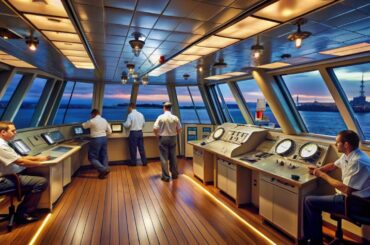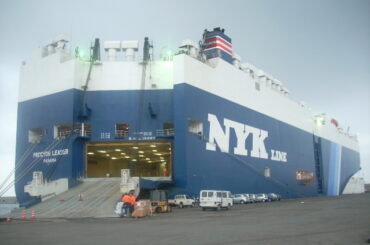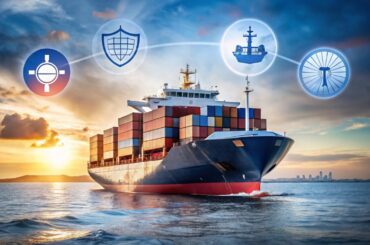In steering through the complex waters of MARPOL Annex 1, understanding the intricacies of preventing oil pollution at sea is paramount. From stringent equipment standards to meticulous reporting requirements, the framework is designed to safeguard marine ecosystems and uphold maritime sustainability. Delving deeper into the operational measures and compliance protocols can reveal a world where environmental stewardship intersects with maritime operations, shaping the future of our oceans.
Overview of MARPOL Annex 1
MARPOL Annex 1 provides an extensive framework for the prevention of pollution by oil from ships. This regulatory framework aims to address the environmental impact of oil spills resulting from ship operations.
By establishing guidelines for the handling and disposal of oil residues, MARPOL Annex 1 seeks to minimize pollution sources in the marine environment. International cooperation is significant in ensuring compliance with these regulations, as oil spills can have far-reaching consequences beyond national borders.
Ship operators play a key role in implementing the requirements outlined in MARPOL Annex 1 to prevent oil pollution. Proper maintenance of oil storage tanks, adherence to discharge regulations, and the use of oil pollution prevention equipment are essential components of these guidelines.
Understanding the potential environmental impacts of oil spills and the importance of adhering to international standards is critical in safeguarding our oceans. Compliance with MARPOL Annex 1 is fundamental to mitigate the risks associated with oil pollution and protect marine ecosystems.
Scope and Application
In the domain of maritime regulations concerning oil pollution prevention, the scope and application of MARPOL Annex 1 set forth specific parameters that govern the handling and discharge of oil residues from ships. The primary objective of MARPOL Annex 1 is to minimize the possibility of oil spills and protect the marine environment.
It applies to all ships engaged in international voyages and ships of 400 gross tonnage and above engaged in voyages to ports or offshore terminals under the jurisdiction of other countries.
The regulations within MARPOL Annex 1 require ships to have equipment and procedures in place to prevent oil pollution. These include measures for the separation of oil and water mixtures, the maintenance of an Oil Record Book, and the installation of oily water separators.
Vessels must also comply with strict discharge limits for oil content in the effluent water to prevent contamination of the marine environment. By adhering to the scope and application of MARPOL Annex 1, ships play an essential role in preventing oil pollution and safeguarding the oceans from harm.
Ship Design and Equipment Requirements
When considering the requirements for ship design and equipment in compliance with MARPOL Annex 1, vessels must adhere to specific guidelines aimed at preventing oil pollution.
One vital aspect of ship design is the implementation of effective ballast water management systems. These systems are essential to prevent the transfer of harmful aquatic organisms or pathogens between different marine environments, thereby reducing the risk of pollution.
Vessels must also be equipped with efficient oil spill response equipment to mitigate any potential oil spills that may occur during operations. This equipment includes oil containment booms, skimmers, and dispersants, all important tools in containing and cleaning up oil spills to minimize their environmental impact.
Proper maintenance and regular testing of this equipment are imperative to guarantee its readiness in case of emergencies.
Operational Measures for Pollution Prevention
Regularly conducting thorough inspections and maintenance of onboard machinery and systems is essential in implementing effective operational measures for pollution prevention.
Monitoring systems play an important role in detecting any anomalies that could lead to oil spills. Adequate crew training guarantees that all personnel are well-versed in spill response procedures and know how to operate machinery safely during oil transfer operations.
Strict adherence to operational procedures, especially in waste management practices, is critical in preventing pollution at sea. Regular emergency drills help crew members hone their skills in pollution control and response, assuring readiness in case of any oil-related incidents.
By integrating these measures into daily operations, vessels can greatly reduce the risk of oil pollution and contribute to a cleaner marine environment.
Reporting and Record-Keeping Obligations
To comply with MARPOL Annex 1 regulations, vessels must adhere to strict reporting and record-keeping obligations. Reporting procedures are essential for ensuring transparency and accountability in the management of oil pollution prevention measures at sea.
Vessels are required to promptly report any incidents involving oil spills, leakages, or violations of pollution prevention protocols to the relevant authorities. Detailed records of these incidents, as well as the actions taken to address them, must be accurately documented using record-keeping tools specified by MARPOL Annex 1.
Effective reporting procedures facilitate timely response to oil pollution incidents, minimizing environmental damage and ensuring compliance with regulatory requirements.
Vessels must maintain thorough records of their oil cargo operations, including quantities loaded, discharged, and transferred, as well as the management of oily residues and ballast water. These records serve as valuable documentation for regulatory inspections and audits, demonstrating the vessel’s commitment to environmental protection and pollution prevention at sea.
Compliance and Enforcement Mechanisms
Shifting from the stringent reporting and record-keeping obligations under MARPOL Annex 1, the focus now shifts towards understanding the intricate web of Compliance and Enforcement Mechanisms.
When it comes to compliance challenges, maritime operators often face complexities in adhering to the regulations outlined in MARPOL Annex 1. This can be attributed to varying operational conditions, lack of awareness, or inadequate resources.
To tackle these challenges effectively, it’s essential to implement robust enforcement strategies. Enforcement strategies play a significant role in ensuring that vessels comply with the regulations and take necessary measures to prevent pollution from oil at sea.
These strategies involve regular inspections, audits, and monitoring to verify compliance. Additionally, penalties and fines serve as deterrents for non-compliance, incentivizing adherence to the regulations.
Frequently Asked Questions
Can MARPOL Annex 1 Regulations Be Enforced in International Waters?
Yes, enforcing MARPOL Annex 1 regulations in international waters poses significant challenges due to enforcement challenges and jurisdiction issues. Coordinated efforts between nations, flag states, and international organizations are essential to effectively regulate pollution prevention from oil at sea.
Are There Any Specific Requirements for Oil Spill Response Training?
To guarantee oil spill preparedness, emergency response, specific requirements exist for oil spill response training. Training covers containment techniques, deployment of booms, skimmers, and use of dispersants. Regular drills enhance readiness, facilitating swift and effective responses to oil spills at sea.
How Often Are Oil Record Books Required to Be Updated?
To comply with regulations, oil record books must be updated every time an entry is made or at least every 24 hours. Consistent maintenance practices guarantee accurate documentation of oil-related activities at sea, aiding in pollution prevention.
What Penalties Apply for Non-Compliance With MARPOL Annex 1?
If you fail to comply with MARPOL Annex 1, fines for violations can be substantial. Legal consequences may include penalties, detainment of the vessel, and possible criminal charges. It’s essential to adhere to regulations to prevent pollution.
Is There a Maximum Allowable Limit for Oil Discharge Into the Sea?
You must adhere to specific oil discharge limits set by MARPOL to maintain pollution control at sea. Non-compliance can result in severe penalties. It’s essential to monitor and regulate oil discharges to protect marine environments.







